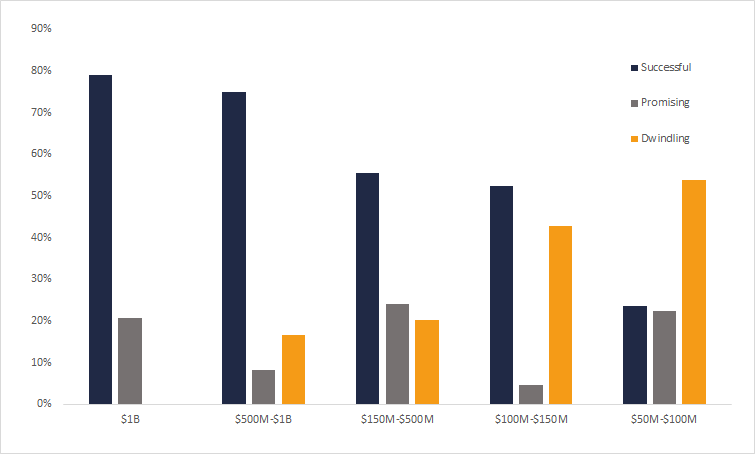STUDY CLAIMS THAT 80% OF ICO'S ARE SCAMS
New York-based Satis Group LLC, formed from the ashes of the Argon Group rejections last year, states itself as "the ultimate advice of ICO." Researchers Mr. Sherwin Dowlat and Mr. Michael Hodapp published a novel way to classify and rank the ICO's entitled, ICO Quality: Development & Trading.
The study begins with the collapse of ICOs into 6 groups: Scam, Failed, Dead, Dwindling, Promising, Successful. "On the basis of the above classification," they wrote, "we discovered that about 81% of ICO's were cheating, ~ 6% failed, ~ 5% was Gone Dead, and ~ 8% went into trading at an exchange.

Scams are defined by researchers as "Any project that expresses the existence of an ICO investment (through a website publishing, ANN thread, or social media posting with a contribution address), is with/without intent to carry out project development tasks with the funds, and/or be considered by the community (message boards, websites or other information online) to become a scam. "It seems that, in the first reading, that be a bit on the loose side. However, very few studies have been tried to compensate for the community's opinions, and this may be their attempt.
Under the classification, The authors failed to explain that the ICOs said "Successfully raised the funding but failed the entire process and was abandoned, and/or refunded the investors as a result of insufficient funding (unplugged soft cap). " Gone Dead also succeeded in raising money, went through the process, "however is not listed on trade exchanges and none of the Github's contribution code on a rolling three-month basis from that point on time." There is no word if ICO can go to another platform rather than Github.

Let's roll more Deeply
Dwindling includes success in funding and completing the process, listed on an exchange, but "there is one or more of the following success criteria: deployment (at trial/beta, at minimum) of a chain/distribution ledger (in the case of a base-layer protocol) or product/platform (in case of app/utility token), there was a transparent project roadmap posted on their website, and had a contributing activity Github code in a surrounding three-month period, "which they refer to as the Success of the Standards. Therefore, advocacy will have an ICO that covers both of the criteria, and ultimately Successful will, of course, have all the standards.
They "keep on building our research in this area and making a deeper study in the coming months," the pair took a deeper dive into their findings: "Within 8% [traded in exchange], coins/tokens with a market cap of $ 50M +: ~ 47% are successful, ~ 20% are Promising, and ~ 34% are Dwindling. In coins/tokens with MCAP of $ 50M - $ 100M (lowest monitored): ~ 24% Successful, ~ 22% Promises, and ~ 54% are Dwindling. "

In contrast, MIT published Initial Coin Offerings and the Value of Crypto Tokens, written by Christian Catalini and Joshua S. Gans, and it seems that they only see between 5% to 25% of ICO's being scams. Furthermore, news.Bitcoin.com published 46% of ICO's of Last Year That Failed, and it is worth a read for a complete picture of the ICO market.
Give me your opinions about findings?

Have you voted your witness?
Consider casting your witness votes for @steemgigs (@surpassinggoogle), @precise, @cloh76.witness, @ausbitbank, @teamsteem, @gmuxx, and @curie who have been adding an invaluable contribution to the community.
And don't forget @blocktrades, @jerrybanfield, and @themarkymark!!!
To cast your votes, just go to
https://steemit.com/~witnesses




thts why US really hunts those illegal ICOs.... i hope nobody will to their trap. :)
Downvoting a post can decrease pending rewards and make it less visible. Common reasons:
Submit
Wonderful post, I particularly like it. I learned new things from your post. I did not know how to make development & trading successful.Great balance of written and visual presentation here rating 20/20 as far as I am concerned!
Downvoting a post can decrease pending rewards and make it less visible. Common reasons:
Submit
Wow
Downvoting a post can decrease pending rewards and make it less visible. Common reasons:
Submit